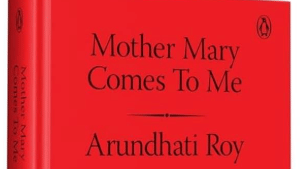Thank you dear subscribers, we are overwhelmed with your response.
Your Turn is a unique section from ThePrint featuring points of view from its subscribers. If you are a subscriber, have a point of view, please send it to us. If not, do subscribe here: https://theprint.in/subscribe/
Can one appreciate good Bhakti music – Bhimsen Joshi, Pandit Jasraj, MS Subbulakshmi, take your pick – while remaining an ardent, unyielding rationalist? The rationalist mind may be agitated by the mystic surrender essential to the lyrics of Tulsi or Mira. But the music, even to a tin ear, can transcend the words. That is mixed feeling that reading Arundhati Roy’s memoir evokes. There is so much to like in her style and yet there is no escaping her message that is hard to reconcile.
The prose is elegant and finely clipped of any unnecessary adornment. Nowhere is there any ambiguity that requires a second read. This, however, is not just great storytelling.
The story itself that is laid out that is genuinely moving. The echoing narrative of Arundhati Roy’s disjointed family feels deeply personal. Each person in this intimate story is etched out with a full armour of flaws but still evokes deep sympathy. Problems of money, love of the bottle, fragile sensitivities and the bruises of a fickle career, simultaneous affection and abuse – each incident in this tale that Ms Roy can be a connection to anybody growing up in almost anywhere in the last few decades.
Ino adulthood and literary stardom, each of her own prior works becomes a character. And then she connects the characters from the God of Small Things to specific characters from her life. One is tempted to go back for a second reading.
Then she trundles into her more complex work and world of non-fiction. It is nearly three decades the Pokhran tests in Outlook. That memorable essay arguing against India’s defence aspirations, is excavated not as a lone relic but as an argument that seems urgent and alive even after India’s nuclear position is more settled. And argumentatively threaded with her successor pieces on Kashmir, Narmada and Bastar
She talks charmingly about her own Booker – the fame and the wealth that followed and her mixed reaction to such fame and wealth, the impact it has on her loved ones. At places, one could be suspicious of some virtue-signalling. Yet, this is the most candid charming part of the memoir.
However, the loudest undertone of the book is that of anger. Not anger at one individual within her family but a very post-modernist anger at a system that is unfair. Anger against laws that needed to be changed, anger against every injustice, anger against the judiciary and the establishment media. Occasionally this anger is masked with sarcasm but more often it is bare. And weaponised with her wordcraft. The anger does not allow for any ambiguity, any engagement with an alternate worldview, or even a multi-layered view at the world of her immediate neighbourhood.
It is difficult to fully contextualize her romance with early adversity, journey to fame and then a back-to-roots work on her philanthropy because it misses out the middle. There is enough to get angry with in this angry voice because there is no missing the othering here that the rest of the book rants about. This other appears as the correspondent who write against her own worldview and her writing. One can easily visualise an identity kit for this other – EMI paying, tax and inflation fearing, tradition-bound, BJP-voting, God-fearing, small-town person of the upstart middle-class. What Ms Roy delivers – without perhaps wanting to – is just that sense of sympathy for such the man (equally likely, a woman) in the middle, trying to keep his foot on the ladder .
One is left wanting for any balance. Maybe it is too much to ask for in a story that is both powerful and powerfully told.
These pieces are being published as they have been received – they have not been edited/fact-checked by ThePrint.


